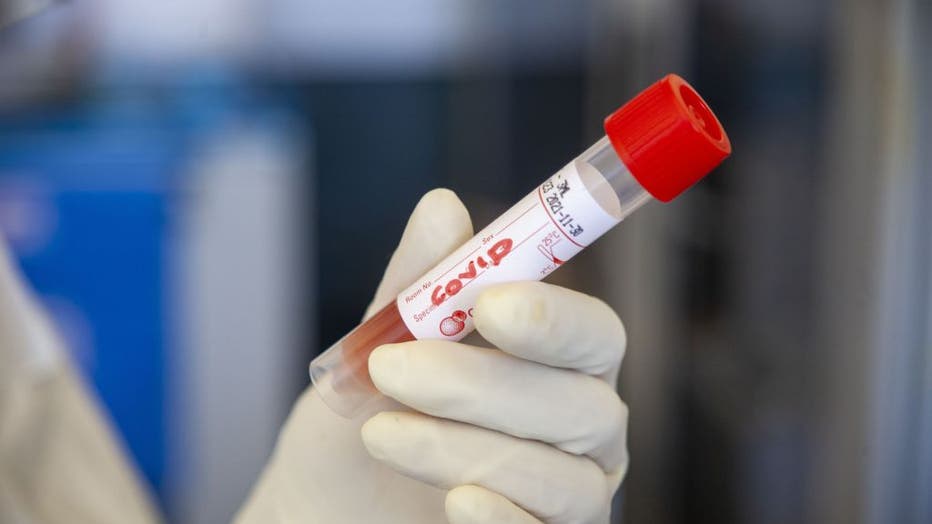US adds another 500K COVID-19 cases in 1 week, a new record
The United States added another 500,000 COVID-19 cases in just one week, a grim new record.
In that span, the U.S. averaged roughly 71,000 new cases per day, the New York Times reported.
For context, when the country revealed its first positive test on Jan. 21, it took another three months to reach 500,000 total cases.
RELATED: Study links mask use to fewer COVID-19 hospitalizations
This week’s milestone further demonstrates the surge in transmission health experts feared would take place once colder weather set in, forcing people to congregate indoors.As of Oct. 30, the U.S. has the most coronavirus cases in the world with 8,950,742 and the most deaths at 228,696.
Globally, 45,179,529 have been infected and 1,183,213 have died, according to data collected by Johns Hopkins University.
Though the American numbers are the highest in the world, the pandemic is seeing surges in Europe as well.

A medical professional holds a test tube containing a swab to a positive test for COVID-19, at the Bari Hospital on Oct. 22, 2020 in Bari, Italy. (Photo by Donato Fasano/Getty Images)
Germany, who initially earned praise for its handling of the virus, is in the midst of a spike, as are the French, British, Polish, Italians, Spanish and others.
Italy and Spain have imposed new restrictions to stop the spread, according to The Washington Post.
The U.S., who never enjoyed the same decline European nations saw over the summer months, has been resistant to return to the lockdowns states enacted in the spring.
Certain cities and counties have taken steps to slow the spread, but statewide measures have not returned so far, the New York Times reported.
“Unless the U.S. and Europe take decisive action to stop the spread of the virus, we could easily see case numbers that eclipse pre-lockdown levels,” Jennifer Nuzzo told The Post.
Nuzzo is a senior fellow for global health at the Council on Foreign Relations. She called the surges “deeply troubling.”
“If case numbers get too large, it may be too difficult to meaningfully slow the virus using measures other than shutdowns.”
This story was reported from Atlanta.

